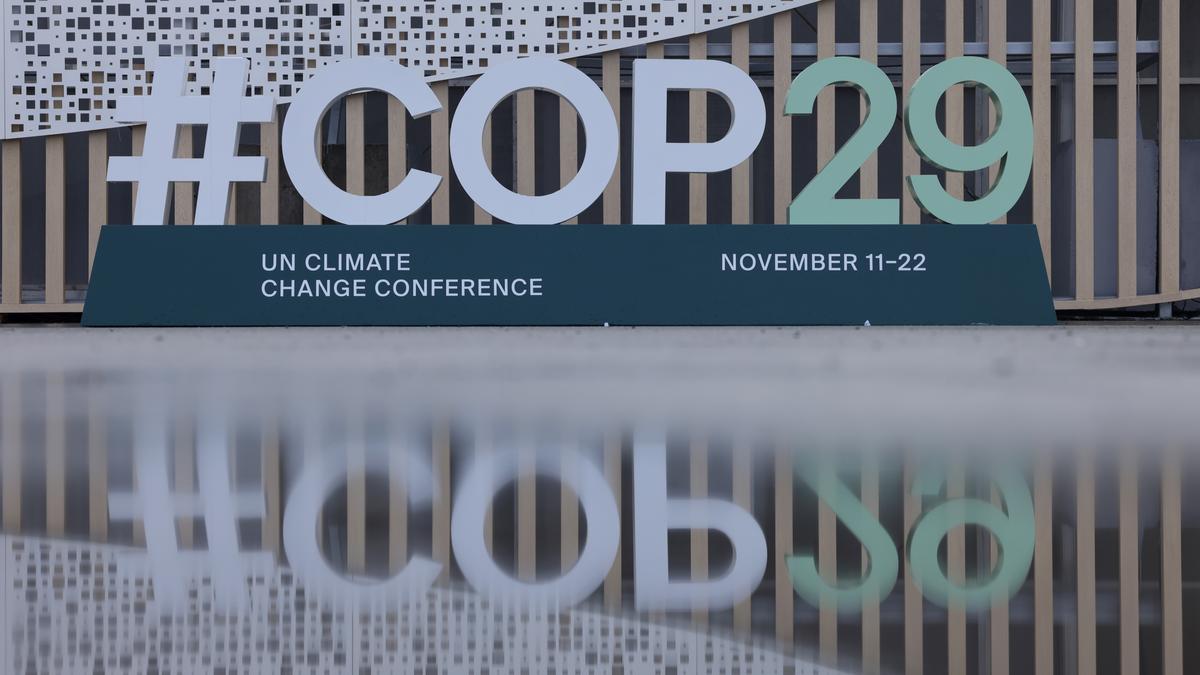
Ahead of COP29, India to emphasise Paris Agreement red lines on climate finance
The Hindu
India aims to push developed countries to increase climate finance at COP29 without compromising Paris Agreement principles.
With the 29th edition of the Conference of Parties expected to commence in Baku, India is expected to stick to its stance of getting developed countries to increase climate finance – a broad term for money for adapting to the impacts of climate change – but without deviating from the principles agreed to in the Paris Agreement text.
In COP15 at Copenhagen, countries agreed on a climate finance target whereby developed countries would collectively mobilise $100 billion per year by 2020 to meet the needs of developing countries. However there was never clarity on how climate finance would be defined. Countries differed on whether conventional business investments in clean energy projects ought to be counted as climate finance or whether these sums would be over and above money that was anyway being channelled to economic development. In 2022, the Organisation for Economic Cooperation and Development (OECD) claimed that the target of $100 billion had been achieved.
In the COP of 2021, countries decided that more money would be required to keep the Paris goals – of slashing global emissions 45% by 2030 and keeping temperature rise below 2°C of pre-industrial levels – feasible. Since 2022, there have been multiple meetings to converge upon a new target called the New Collective Quantified Goal (NCQG) on climate finance – both in terms of the expected quantity as well as the year of delivery – by 2025, which means it ideally ought to be firmed up by in the COP this month.
COMMENT | All eyes on Baku and the climate finance goal
“We are flexible and open to different kinds of finance. They need not only be grants but also concessional loans via multi-lateral banks or investments in technology. Things can be discussed but if it’s business-as-usual (with short term profit motive) dressed up as climate finance or attempts to draw in countries that are outside the scope of the Paris Agreement, I doubt much progress can be made,” a highly placed official, closely involved in India’s negotiations told The Hindu, on condition of anonymity.
A draft negotiating text that was put out in October suggests that some numbers ranging from $1-1.5 trillion with a commitment period until 2035 are being debated. However the only feature of the NCQG that is agreed upon is that it build upon the existing $100 billion as a floor. “A key concern is that developed countries are trying to include developing countries (China and India) using new terms such as ‘major economies’ in a bid to get them to be part of NCQG,” said the official cited earlier.
“The result of the New Collective Quantified Goal (NCQG) on climate finance will be a pivotal measure of success for COP29. A positive NCQG outcome is also essential to restore confidence in multilateral efforts and mend the fractured trust between developed and developing countries,” Shailly Kedia, Associate Director, The Energy Resources Institute, said in a statement. “If this process overlooks historical responsibility, the specific challenges faced by developing countries, and the critical need for capacity building, it could lead to outcomes that are unjust in addressing climate change.”











